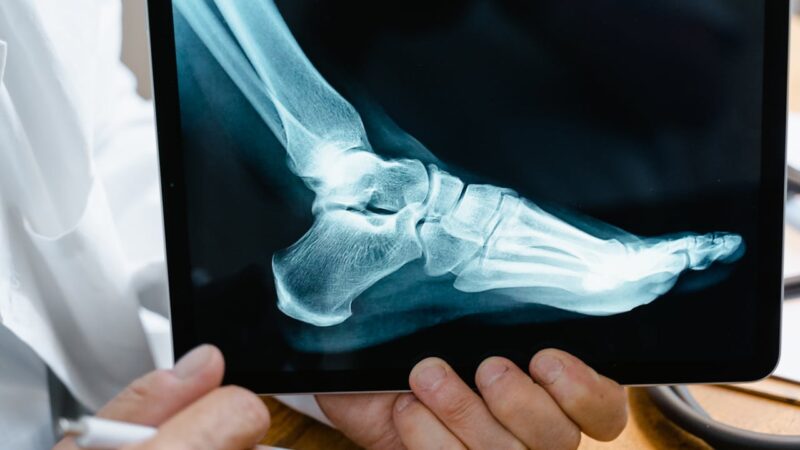Navigating the Personal Injury Claim Process

Personal injury lawsuits provide individuals the legal means to seek recompense for damages caused by another party’s negligent acts, such as medical bills, lost income and pain and suffering. Successful claims typically require evidence to back up real damages like medical costs, lost income and pain and suffering suffered as the result.
Once your attorney has amassed evidence, they will draft and send out a demand letter to the insurance provider. If no agreement can be reached beforehand, your case may proceed directly to trial.
Filing a Claim
After an accident caused by someone else’s negligence has completely upended your life, medical bills start piling up, pain and suffering are felt, physical health is threatened and mental well-being compromised. Recovering damages from those at fault can be complicated – an experienced personal injury attorney can offer invaluable guidance during this difficult time and assist you in understanding all available options and clarify the process involved.
One of the initial steps in seeking compensation for injuries sustained due to another is filing a claim with their insurer. Your lawyer can handle this for you and communicate directly with them on your behalf; it’s best not to speak directly to them without first consulting an attorney, as doing so could compromise your case and endanger its success.
Determining the extent of your damages requires compiling detailed medical records and creating an expense list related to the accident, such as costs related to in-home healthcare assistance or transportation services for injuries sustained in an accident. Your lawyer can use this evidence provided to calculate how much compensation is owed from you.
Your injury claim may be resolved out of court through negotiations with the insurance company; however, if that proves ineffective and you cannot reach an acceptable settlement within the statute of limitations set by law.
Before filing a personal injury suit, it’s essential to seek an evaluation by an experienced personal injury attorney and establish whether it has merit after conducting a forensic analysis. They can help establish negligence by showing how the at-fault party failed to exercise reasonable precaution in handling a situation which led to your injuries.
An important step when proceeding to arbitration or trial is deciding whether you want to go with either of them. An arbitration hearing resembles small claims court trial in that an arbitrator makes decisions instead of judges.
Negotiating

Insurance claims adjusters are skilled at using negotiation tactics to convince claimants to settle their cases for less than they’re worth. A knowledgeable NYC personal injury attorney can help protect you against being fooled into accepting such offers by protecting you from their tactics and helping to negotiate an equitable settlement for your claim.
Before initiating negotiations, your attorney will conduct extensive research to assess what your injuries are worth in terms of economic and non-economic damages. Economic damages typically cover costs such as medical bills, lost wages or income and repairs for property damage while non-economic ones include pain and suffering, loss of consortium and emotional distress. After taking into account both types of losses, they will submit all calculations together as a demand package to the negligent party’s insurance provider.
As part of negotiations, it is crucial that you continue receiving medical treatment and following doctor orders. Doing this will encourage an insurance company to offer a higher settlement offer as they will have more accurate information regarding your losses and damages. It may also help if you keep track of all out-of-pocket expenses related to medical treatment as well as missed work days due to injuries – helping your attorney account for all losses within their demand package.
Make sure that you’re prepared for protracted and sometimes contentious negotiations with an insurance company to achieve a reasonable settlement of your claim. Sometimes defendants refuse to negotiate at all and may try to force you into accepting a lower settlement amount or waiving your legal representation rights. Therefore, having an experienced personal injury lawyer by your side is of vital importance in these instances.
At times, parties may enter mediation in order to resolve their dispute without going to trial. A mediator is an impartial third-party with experience resolving disputes between individuals and businesses, during which both sides present their cases to an arbitrator who makes a ruling; this process typically results in faster resolution times with higher settlement amounts.
Mediation
Mediation aims to facilitate an informal meeting between disputing parties and an impartial individual (the mediator), who facilitates communications and encourages mutually acceptable solutions. Mediation can often help parties avoid litigation by encouraging dialogue and offering feasible solutions; however, its use can also prove invaluable in managing personal injury claims when litigation becomes inevitable.
Mediation sessions typically take place in a private conference room and involve both parties involved as well as their attorneys, including possible insurance representatives from both sides present at mediation.
Mediators can be attorneys or anyone with formal training and experience in conflict resolution. At mediation sessions, parties and their lawyers are encouraged to discuss issues collaboratively – giving both sides the chance to reach an acceptable resolution without incurring costly delays and uncertainty of going to trial.
Before going into mediation, it’s wise to consult your attorney on creating an estimate of the value of your case. Doing this will ensure you do not come in demanding too much or being unrealistic at the mediation. Being flexible about what you will accept helps avoid trial; though your attorney will likely push hard for maximum possible amounts that you should reasonably be expecting.
Before mediation begins, the mediator will typically meet separately with both plaintiff and defendant to hear each side’s story and assess what impact their injuries have had on their life. It also gives defense attorneys an opportunity to see how their case would appear from both perspectives.
Mediation occurs through meetings between all parties involved. Sometimes the mediator may advise participants to remain separate if there is concern about safety or high probability for conflict.
Trial
Personal injury cases involve a judge or jury determining who was at fault in an accident and the amount that should be awarded as damages to injured parties. Although most cases can be resolved through settlements, others still end up going all the way to trial; trial involves both sides presenting evidence and arguments to a judge or jury, making having an experienced lawyer by your side crucial throughout this lengthy process.
Strong demand packages often lead to successful settlement agreements; if that fails, your lawyer may file a lawsuit in court instead. Once filed, service must take place – usually taking several months and necessitating close collaboration with your attorney so as to ensure it goes smoothly.
During litigation, your attorney and that of the defendant will exchange information to support their arguments in court. This may involve depositions where you will be interviewed under oath about what injuries have been suffered by you and their treatments; additionally, your lawyer will gather and review medical records related to them in order to construct a strong argument in favor of damages claims.
Trial proceedings typically last several days, depending on the complexity and length of deliberations in your case. If a jury returns a verdict in your favor, they must pay any damages ordered by them; defendants can sometimes appeal verdicts reached by juries but only on legal grounds.
Once your case is settled, you will receive a check from the insurance company and can use this money to compensate you for losses after paying any medical liens or subrogation claims that may exist. Your attorney can then distribute this sum accordingly.






